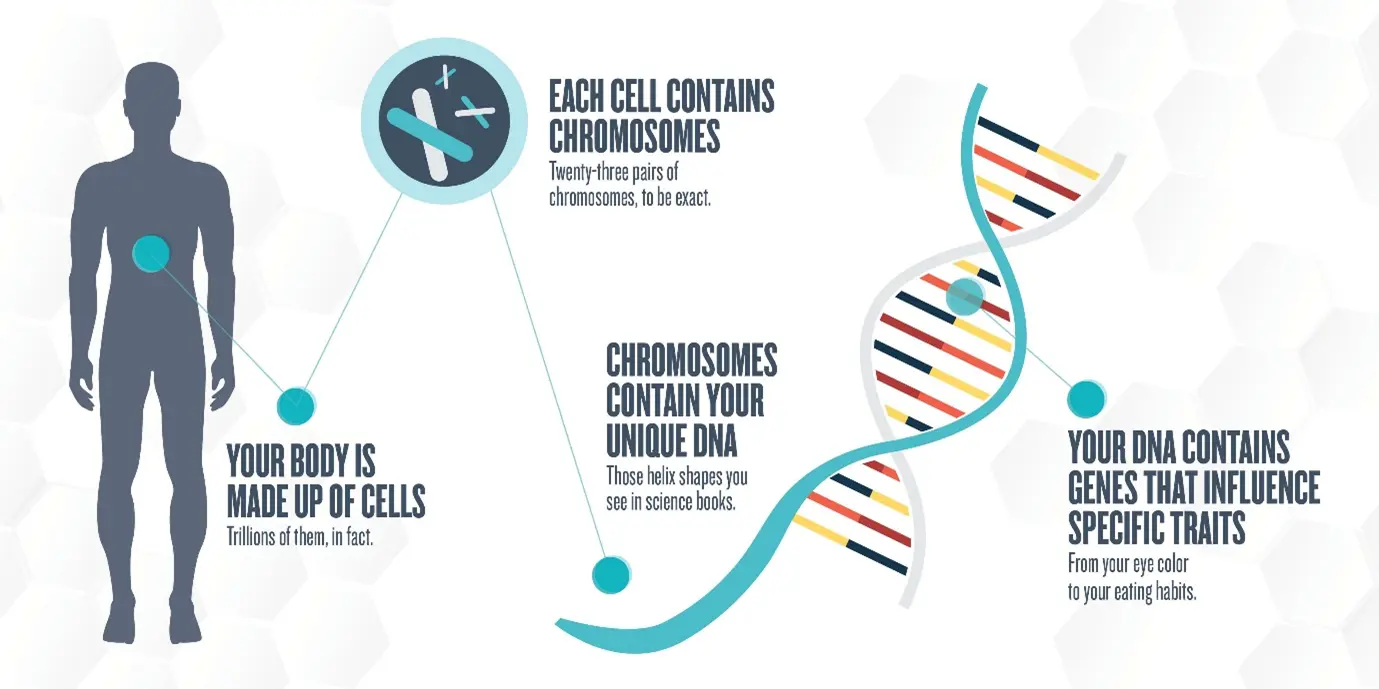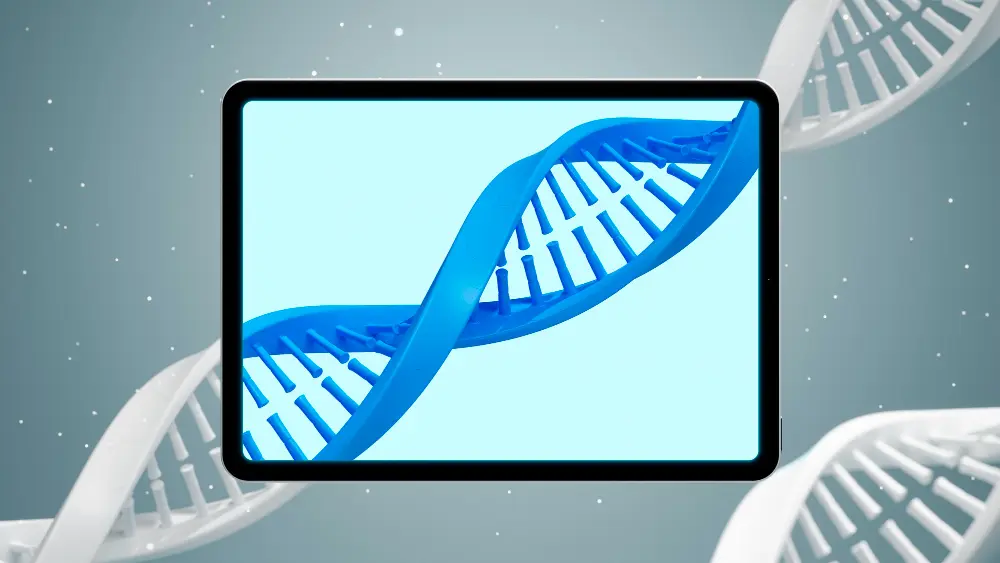At SuperDNA, we create, follow, and are informed by cutting-edge science. Through an ever-expanding network of collaborations with academics, clinicians, and patient advocacy groups, our commitment to genetic disease detection, discovery, and diagnosis is based on sound science and is focused on enhancing patient care. Our ability to translate insights drawn from cutting-edge research into more diagnostic opportunities responsibly. Today, our discoveries fuel the industry’s understanding of genetic disease diagnosis and pave the way for better patient care, treatments, and outcomes tomorrow.
Decoding complexity: the role of whole exome and genome sequencing in genetic diagnosis

The SuperDNA differences
Whole Genome Sequencing (WGS)
Unlike whole exome sequencing (WES) which focuses on coding regions, WGS reads the entirety of your DNA code. This means WGS can identify variations (mutations) anywhere in your DNA, not just in coding regions. That is why WGS is most advanced genetic technology that can find answers that more targeted genetic tests miss and are especially useful when the timing is critical, and test results may direct or alter medical management.
Products: SuperDNA Ultimate DNA Test
Whole Exome Sequencing (WES)
It delves into your genetic code and reads the “exome” that is a specific section of this library containing the most critical parts – the coding regions, like the recipes used to create proteins. It can identify variations (mutations) in your genes that might be linked to specific diseases or health conditions.
Products: SuperDNA Complete DNA Test, Family Planning, Newborn Metabolic Screening
Genotyping
It examines large number of specific locations on your DNA called Single Nucleotide Polymorphisms (SNPs) simultaneously to provide information about your wellness, potential common illness risks, and other traits.
Products: SuperDNA Essential DNA Test, SuperKids Talent & Personality Test, SuperDNA Health & Allergy Test, Skin DNA Health Test, Pharmacogenomics Test
Multi-Cancer Early Detection (MCED) using Liquid Biopsy
A test aims to detect the possibility of several different types of cancer at an early stage, potentially before symptoms even appear. Unlike traditional biopsies that involve taking cancerous tissue samples, a liquid biopsy is a minimally invasive blood test. It analyzes circulating tumor DNA (ctDNA) shed by cancer cells into the bloodstream.
Products: CancerDetect™
DNA Methylation
A DNA methylation test is a specialized analysis that looks at the methylation patterns on your DNA. Imagine tiny tags sticking to your DNA instruction manual (your genome). These tags, called methyl groups, don’t change the actual letters in the instructions, but they are known to affect how easily those instructions can be read, due to the changes of lifestyle and environmental factors.
Products: Epigenetics Test
Our database
As the number of new research findings grows, so does our database. New data increases the potential for greater insights. By comparing new findings against the data from large populations studies UK biobank, Singapore cohort project, 1000 human project and many more, we eventually can confirm whether a genetic variant is significant. This way, new variant findings lead to more answers for current and previous patients.
Internally developed with over one million data points, our database leads to more accurate and comprehensive test results. Combined with our proprietary, and state-of-the-art variant identification software, our ability to deliver highly accurate test results is unmatched and makes finding definitive risk stratification, even in complex cases, possible.


Accuracy and reliability
Polygenic Risk Score (PRS) is used to measure the total number of genetic variants within an individual to assess their heritable risk of developing a particular complex disease. It combines information from multiple genetic variants into a single score, making risk prediction for common diseases more accurate. PRS uses risk alleles identified in a Genomic-Wide-Association Study (GWAS) and varies for different people in a population. By considering behaviours, environment, and PRS, a more accurate estimate of an individual’s risk for a disease can be obtained, which can improve accuracy of your genetic report. Implemented with expert oversight, our advanced interpretation methods incorporate automation, bioinformatics, and machine learning, enabling efficient discovery of genetic differences at previously undetectable levels.
- Proprietary secondary and tertiary analysis pipelines.
- Variant interpretation methods combining intelligent automation with clinical expertise and internal knowledge bases.
- Prospective and retrospective data mining.
Not all genetic tests are created equal!

